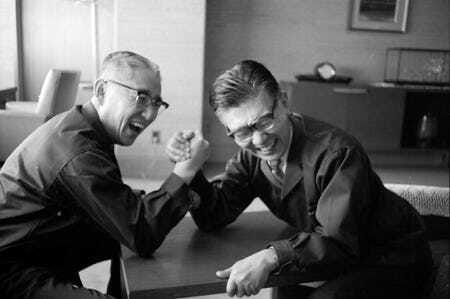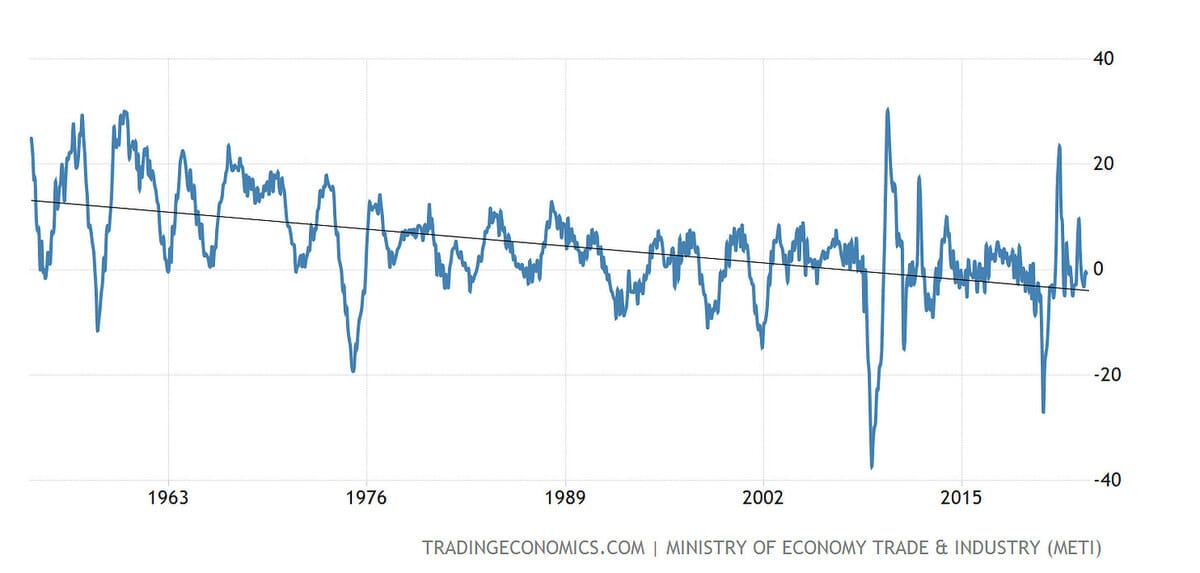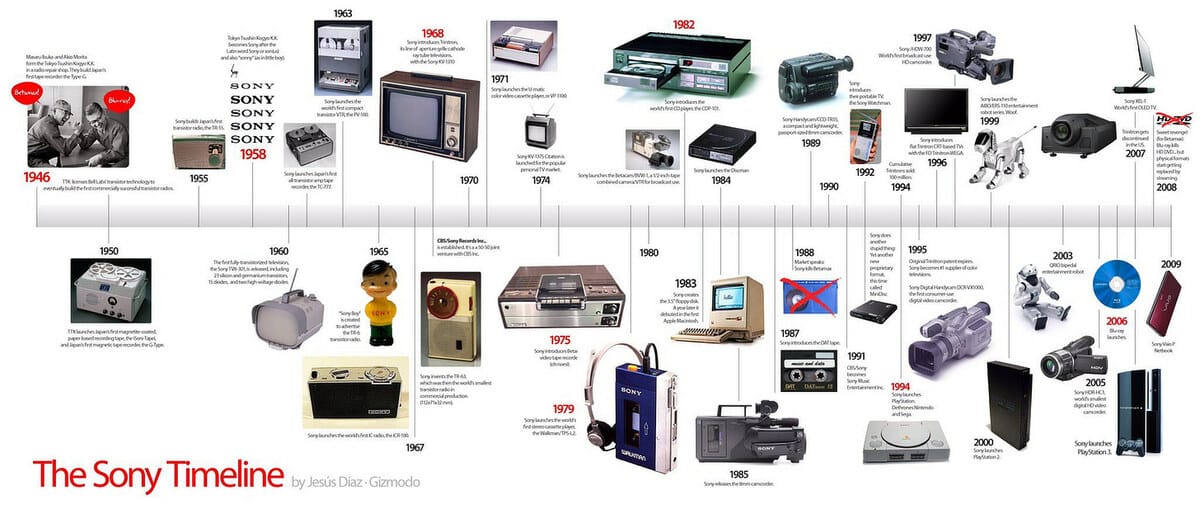Few companies have maintained long track record of innovation. Let’s start with Sony who recently celebrated its 77th anniversary. Sony was founded on 7th May 1946 in a bombed out Tokyo shop in the wake of World War II by it’s founders to design and create innovative products which would benefit people.

Sony founders Mr. Akio Morita (left) and Mr. Masaru Ibuka (right). Source: Sony
In post war Japan, there was severe shortage of food in the country at the time and also surplus of electricity as the war plants had closed down once the World War II had ended. Sony’s decided to produce was an electric rice cooker to fill this need while demand for such products was rising and supply of electricity was available.

Sony’s first product was a wooden electrical rice cooker. Source: Sony
Unfortunately, for a startup like Sony it’s first product was a failure. It either overcooked or undercooked rice, and this was a memorable failure for the Sony’s founders and team. But rather on giving up or lowering their sights, they continued their innovation march forward and over the course of seven decades Sony became a household name. One important lesson for start-ups to be that to continue investing and focus on the future even if your initial products don’t succeed as expected.
Sony later launched highly successful products such pocket size radio’s in 1950’s, color TVs in 1960’s and Walkman in 1970’s. Walkman was incredible success for Sony with 2 million devices sold in first 1.5 years.
And this all made sense as industrial Japan up until 1980’s was highly productive which meant that wider ecosystem of supplier companies were able to provide high quality components and parts at lower costs. Things begin to change in late 80’s and early 90’s though when industrial output trend, which had been declining since 60’s, accelerated it downward trajectory combined with rise of industrial might of China and other ASEAN nations.

Despite these historic trends, Sony kept on churning out popular and iconic products such as digital camcorder, playstation game players, blu-ray, Vaio laptops throughout 90’s and 2000’s. But from 2009, Sony struggled as key consumer electronics sector declined and its pace of innovation slowed down.

Source: Gizmodo
A Harvard Business Review study from 2012, looked at Sony’s decline in more depth from the changing trends and asked why is the strategy that served Sony once so well was failing in the second decade of the millennium. The answer may lie in how consumer preferences got reversed; from “product centricity” to “experience centricity”.
From the early 1980s and into the 90s, Sony’s was the unrivalled master of the consumer electronics world, its name was synonymous with cutting-edge technology, sophistication, and desirabilitySony still makes exquisite products, but fewer and fewer people get excited about them.
Apple’s iPhone is one example of this technological shift which Apple got it right while Sony still focused on the hardware side of the product. This is despite the fact that Sony spent more on it’s R&D budget than Apple as percentage of the revenue.

Source: Statista
This shift in consumer behaviour was that instead of having one gratifying experience of buying a product, customer wanted continuous customisable experiences with an which was made by possible through “software” rather than “hardware”. A user could install a new app or download a new song to adapt their use of the underlying hardware with an emotional impact.
Staying innovative is a uphill task and require hard work and adjustments to the product strategy to adapt with technological development, user preferences etc. Otherwise, even the the largest and most innovative companies would struggle to stay with the innovation curve.
***
Did you enjoy this article? If so, and you want to support my work, the best thing you can do is share it with your friends. Who do you know that could be interested in this topic?
